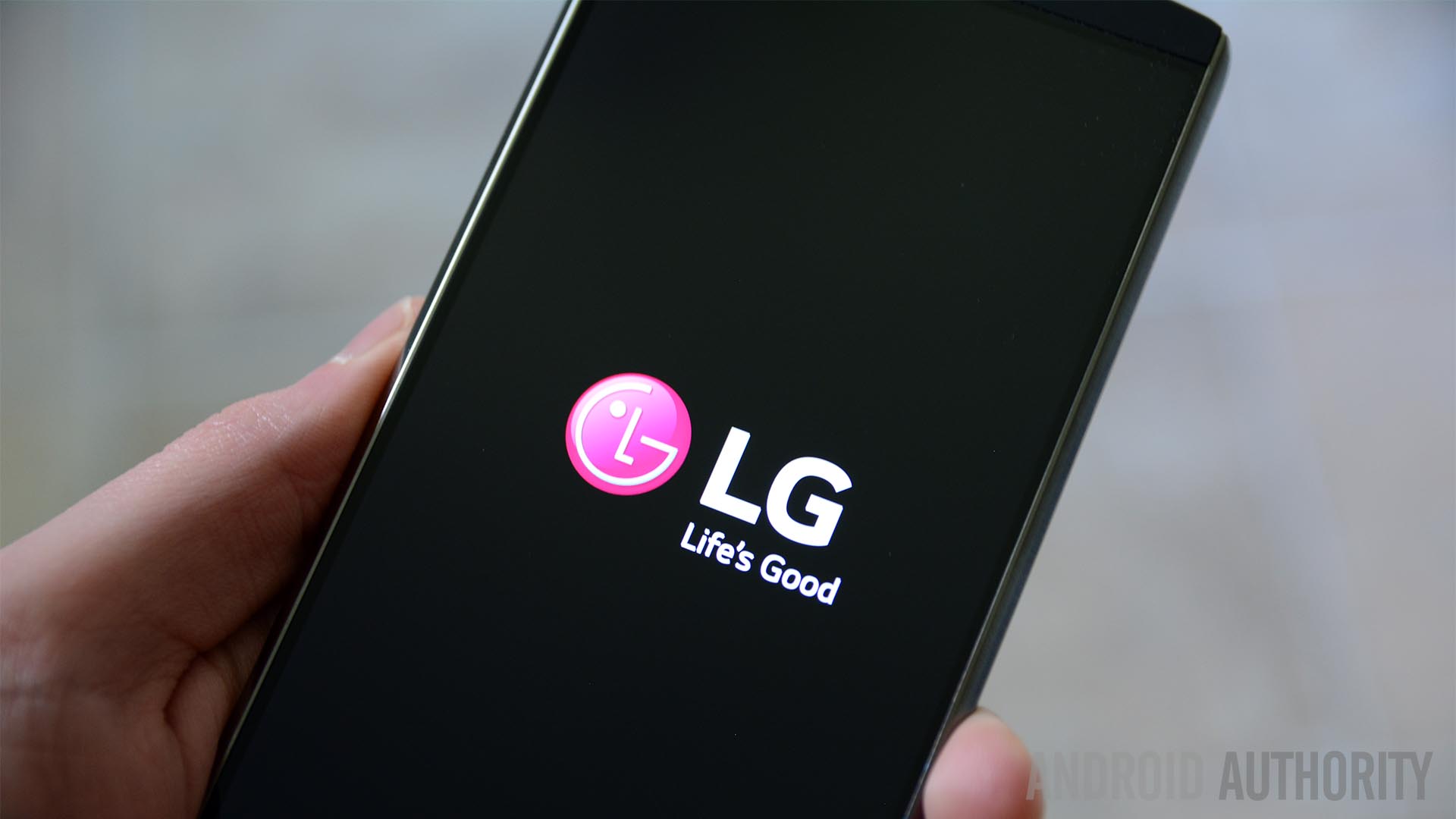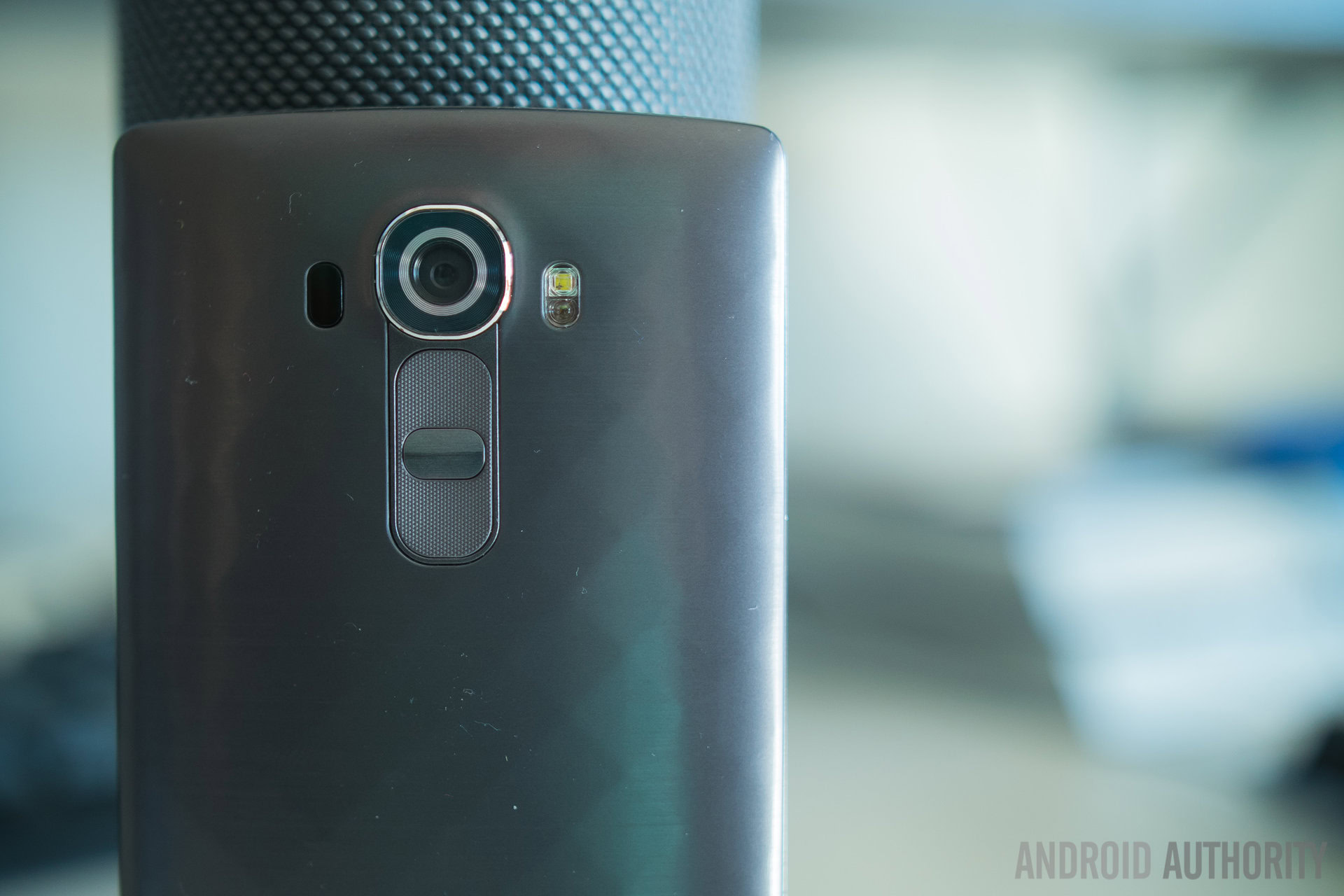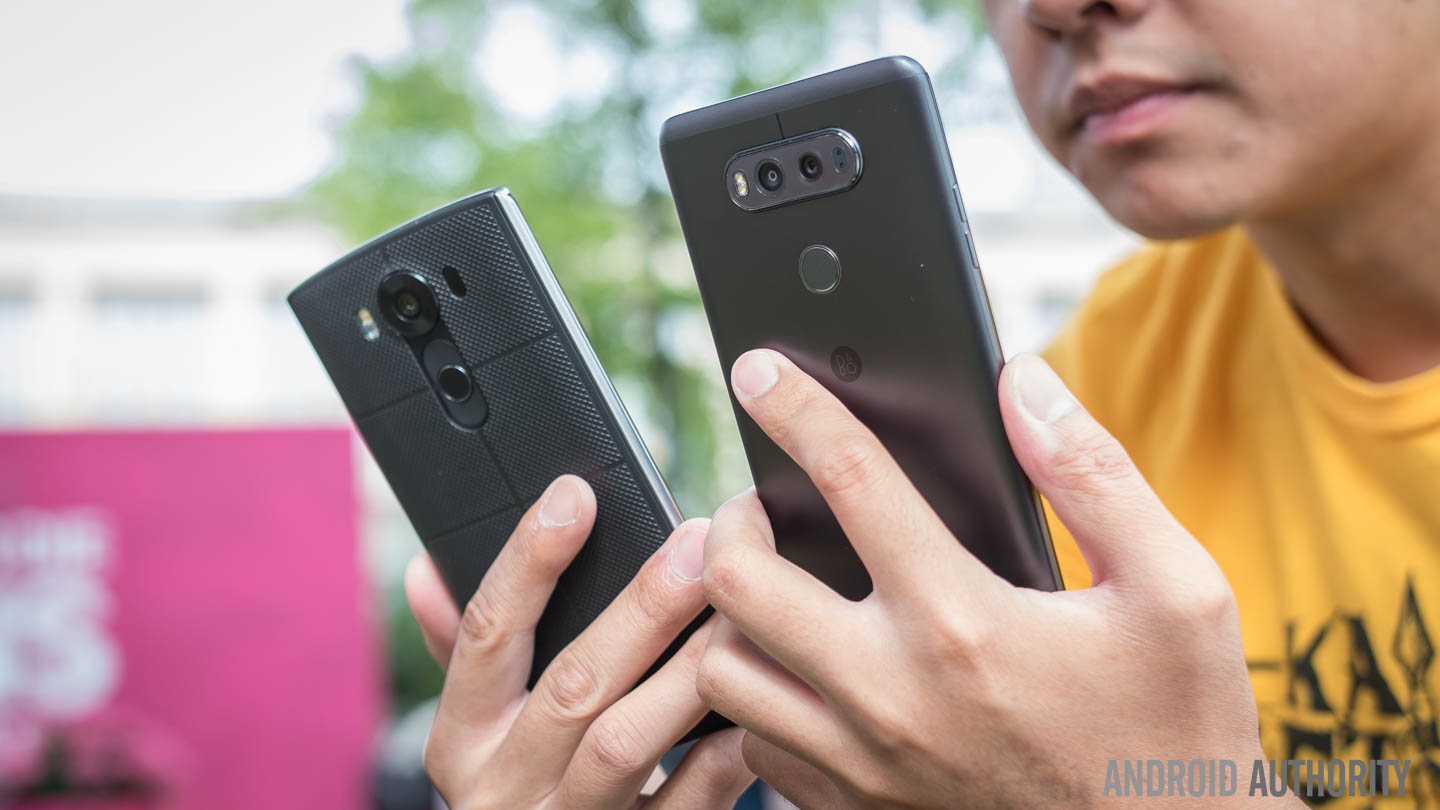Affiliate links on Android Authority may earn us a commission. Learn more.
What's going on with LG and those bootloops?
Published onDecember 15, 2016

LG has put out some impressive Android hardware over the years, but consumer reports would suggest that the company has been struggling for production consistency with its past few models.
Bootloop issues first popped up in force with the LG G4 and users have reported similar issues with most of the company’s flagship handset releases since then to varying degrees. Unfortunately, the first report of a similar problem with the V20 surfaced recently, although this could just be an isolated case.
So far, LG has only acknowledged problems with the LG G4 and dealt with some other issues affecting the Nexus 5X that it developed for Google. Consumers have also reported similar issues with the V10, and to a lesser extent the G5 also.
We reached out to LG, but the company declined to make any comments pending the investigation of the reports. Without an official response it’s tough to know how widespread, if at all, these problems are for LG’s other flagships.
Here’s a recap of what’s gone on so far, and what we do and don’t know about problems with LG’s flagships.
Fixing customer support
Back with the original LG G4 bootloop saga, it took LG months to acknowledge the problem after it was first reported around September 2015, and only after customers started up a petition to catch the company’s attention. Carriers and retailers were actually much quicker to address the problem, and some offered repairs for devices within warranty. The same couldn’t be said for LG though.
Although the company did repair some devices, other consumers were told that their model number didn’t make them eligible for a repair or replacement. With a little searching, you can find plenty of consumers who were less than happy with their experience, with reports of overly long delays and problems persisting even after repairs.
It wasn’t until January 2016 that LG acknowledged the problem and offered a remedy. The company eventually said that it would repair all the affected devices, but it took far too long to offer a satisfactory solution to this issue.
The original G4 issue was first reported around September 2015, but it wasn't until January 2016 that LG acknowledged and addressed the problem.
The Nexus 5X faced a couple of issues of its own, but LG handled this a little better. The first reported problem was caused by an update to Nougat causing a bootloop issue for a number of users, but some other handset owners also experienced a hardware defect which caused a bootloop that was harder to fix.
For the Nougat software loop, Google offered to fix the issue for phones purchased through through the Google Store, while those who purchased from elsewhere had to have a warranty for LG to take a look at the problem. As for the separate hardware issue, LG had been repairing devices through their usual warranty program, but stopped fixing devices and simply offered consumers a refund a couple of weeks ago. As the Nexus 5X is no longer in production, the company had run out of spare parts to fix the issue, so consumers who had sent their phone in for repairs were offered full refunds. While that might be disappointing for some, LG certainly handled this situation more professionally and promptly than the G4.
As for the G5 and V10, we simply don’t know for sure if there are any common issues, but there are certainly fewer reports of bootloops than there were with the G4. Either way, customers with a warranty, which typically lasts 12 months, can send their phone back to LG for a free repair of a genuine defect. Unfortunately, this is what makes the current situation rather difficult to judge.
Besides the officially confirmed G4 issues, we don’t know if reports of other LG handsets failing are related, signs of a new fault, or actually being reported by some customers who don’t want to admit fault for something else entirely.
It’s a similar situation with Samsung after the Note 7 fiasco: now everyone is watching for any rare battery fault to suggest that other Galaxy phones might be dangerous too. Whatever the truth is, a statement from LG might help to clear this all up.

What could be the cause?
Given that handsets affected by the issue suddenly shut off and can’t be restored via a software flash, it’s unlikely that LG’s bootloop problem was being caused by any of its software (the exception being the Nexus 5X Nougat update brick). It’s more likely to be a hardware related problem, possibly a manufacturing defect that occasionally creeps into the production line.
After acknowledging the problem with the G4, LG confirmed that the issue was caused by “a loose contact between components”, and it’s possible that a similar problem has reoccurred with other models too. The cancellation of Nexus 5X hardware replacements certainly backs up this theory, although we would expect LG to have addressed such a problem with subsequent hardware generations.
LG confirmed that the G4 bootloop issue was caused by “a loose contact between components”
A loose connection between power supply or memory components could certainly cause a phone to fail to boot up properly, due to a lack of system stability or not being able to access vital memory. It’s also possible that a faulty connection to other components, such as the camera or fingerprint scanner, could cause a similar problem. This could be down to important setup communications not being sent or received between peripherals correctly.
These type of defects can and do affect a wide range of hardware, and certainly aren’t limited just to LG. Even so, it’s important that companies have proper, consumer friendly ways to deal with the small number of inevitable defects. LG’s poor handling of the original G4 case has certainly placed the company under more scrutiny than it’s competitors lately. However, this makes it difficult to know whether LG’s hardware is actually more prone to faults than its competitors, or it simply has a target on its back now.

Should I buy a LG phone?
The prospect of ending up with an unusable handset is certainly enough to make almost all consumers think twice about picking up a LG handset, but we must remember that the number of customers affected by bootloops still remains quite small. The scale of the issue hasn’t ever approached mass recall levels. Although this doesn’t mean that it’s worth completely ignoring the possibility that you might be affected.
The safest thing to do is to make sure that you buy your LG handset from a retailer that offers a full manufacturer warranty. Perhaps even upgrade to a third party two year warranty just for that piece of mind. As tempting as bargain second hand or import sales may be, these are by far the least likely products to be covered by a retailer or manufacturer warranty, especially if the phone has come from another country.
[related_videos align=”center” type=”custom” videos=”684693,654322,725108,606876″]
LG still has some very good hardware on the market, but it might be wise to discuss returns policies with your carrier or retailer in advance of an LG purchase. Just in case. If you are affected by a bootloop issue, regardless of your manufacturer, be sure to get in contact with your carrier/retailer and the OEM to discuss your options and have your device repaired.